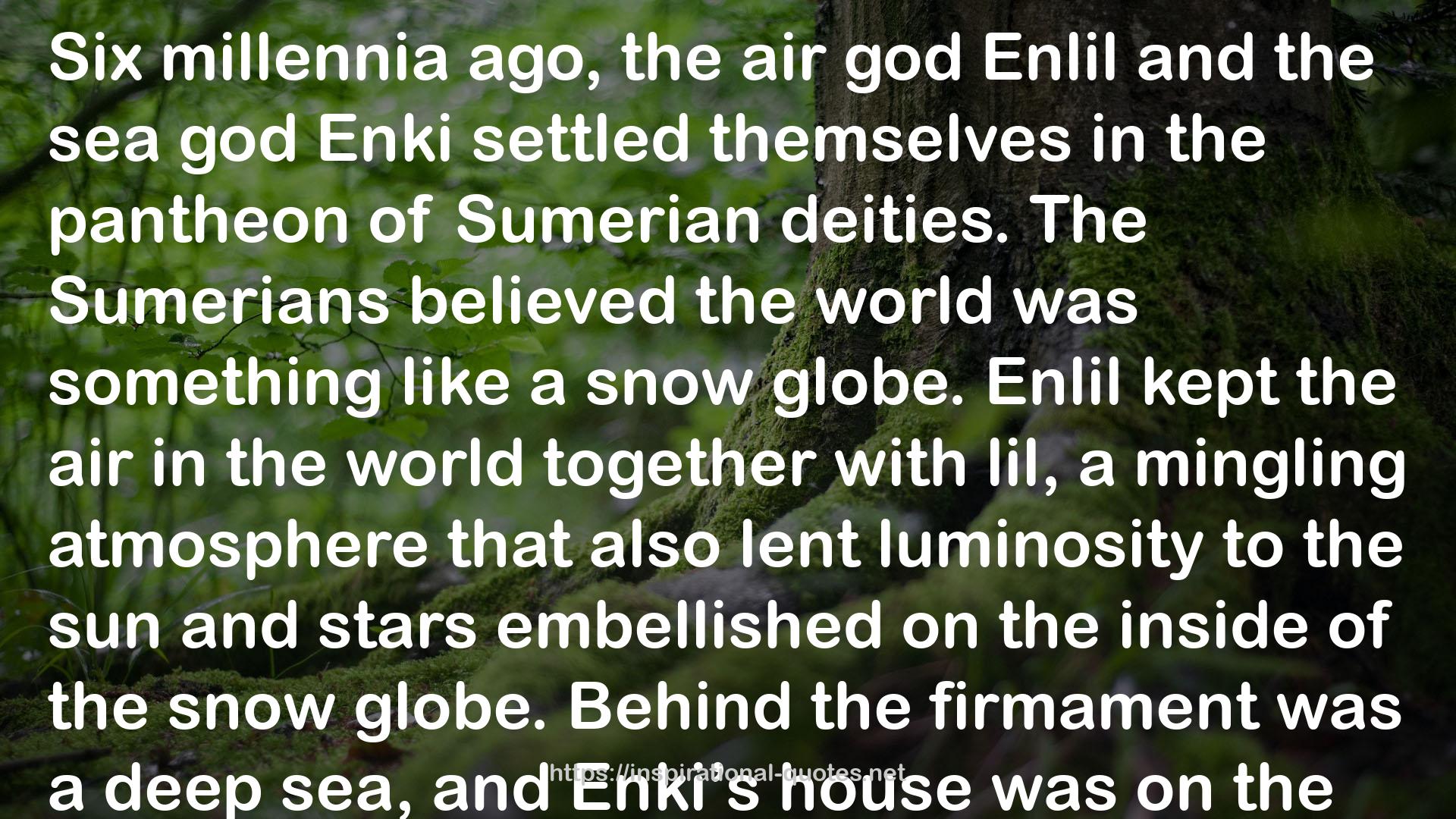" Six millennia ago, the air god Enlil and the sea god Enki settled themselves in the pantheon of Sumerian deities. The Sumerians believed the world was something like a snow globe. Enlil kept the air in the world together with lil, a mingling atmosphere that also lent luminosity to the sun and stars embellished on the inside of the snow globe. Behind the firmament was a deep sea, and Enki’s house was on the sea floor—a place called Abzu. It was a house made of colors that could not be seen, tiles of lapis lazuli, and encrustations of gems, most especially ruby and cornelian, that could not be crushed at those depths. The bowed cedar doors were hammered right with gold no brine could corrode. In this house Enki created a man. He mixed clay over the volcanic furnace, shaped it with heavy water, and swam it to the world. He breathed air into it there. The man failed. His body was weak. So was his spirit. According to the translation of Samuel Kramer of the University of Pennsylvania, the man was offered a piece of bread: “He does not reach out for it. He can neither sit nor stand nor bend his knees.” What is the lesson? That a man-creature created in the deep should stay there: in a house without light, without a hearth. "
― J.M. Ledgard , Submergence
